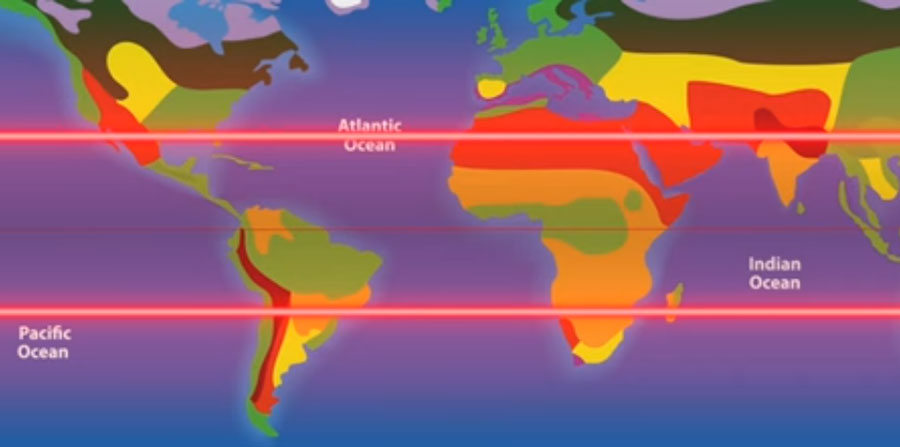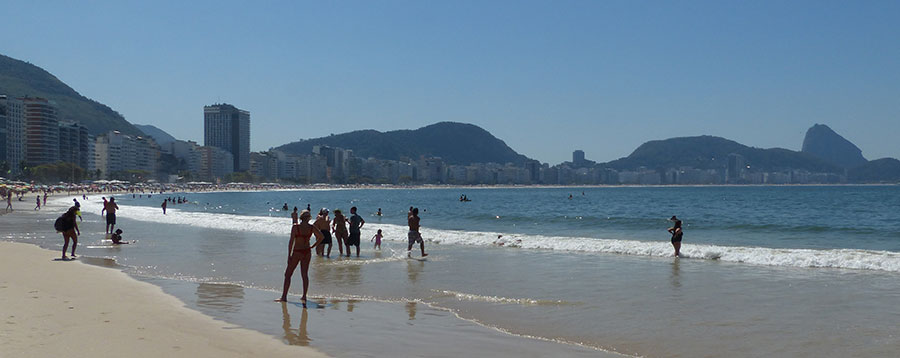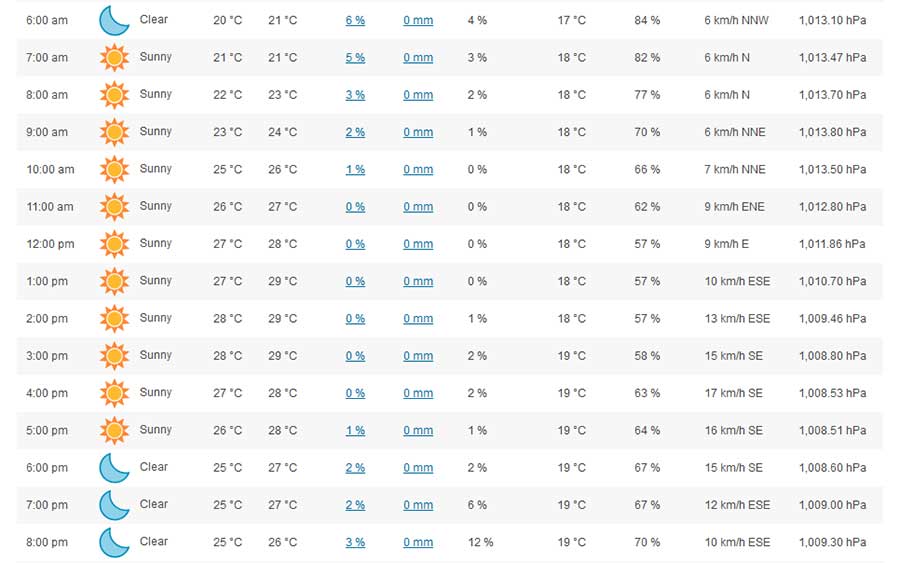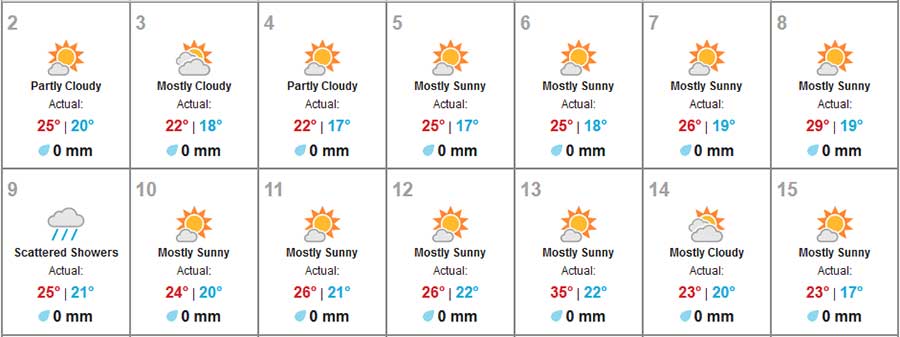What is the average temperature in Rio de Janeiro?

Are you curious about the weather in Rio de Janeiro? Wondering what the average temperature is like in this vibrant city? Look no further! Rio de Janeiro, known for its stunning beaches and iconic landmarks, boasts a tropical savanna climate that is sure to captivate you.
With its warm temperatures and refreshing sea breezes, Rio de Janeiro offers a year-round paradise for both locals and tourists alike. From its scorching summer months to its mild winters, the city enjoys a consistent climate that is perfect for outdoor activities, beach days, and exploring the bustling streets.
Whether you’re planning a trip or simply want to satisfy your curiosity, this article will provide you with valuable insights into the average temperature in Rio de Janeiro, allowing you to plan your adventures accordingly. Get ready to immerse yourself in the enchanting warmth of Rio de Janeiro’s climate!
Understanding average temperature and its significance

The average temperature is a key indicator of the overall climate of a particular location. It is calculated by taking the sum of all recorded temperatures over a specific period (usually a year) and dividing it by the number of days in that period. This value provides a general overview of the typical temperature range experienced in a given place. In the case of Rio de Janeiro, understanding the average temperature can help you plan your activities, pack appropriate clothing, and make the most of your time in this beautiful city.
Rio de Janeiro’s average temperature is influenced by various factors, including its geographical location, ocean currents, and prevailing winds. The city is situated in southeastern Brazil, along the coast of the Atlantic Ocean, which plays a significant role in moderating the city’s temperature, providing a cooling effect during the hot summer months.
The average temperature in Rio de Janeiro ranges from 75°F (24°C) to 85°F (29°C) throughout the year. However, it is important to note that these values are just averages, and actual temperatures can vary depending on the time of year and weather patterns. It’s always a good idea to check the local forecast before your trip to get a more accurate picture of what to expect.
Factors influencing the average temperature in Rio de Janeiro

Several factors contribute to the average temperature in Rio de Janeiro. One of the primary influences is the city’s proximity to the Tropic of Capricorn, which means it experiences a tropical climate. This results in consistently high temperatures throughout the year. The city’s location along the coast also plays a role, as the ocean currents help regulate the temperature and create a more pleasant coastal climate.
Another factor that affects the average temperature is the seasonal variation in rainfall. Rio de Janeiro has distinct wet and dry seasons, with the majority of rain falling between November and March. During this time, the city experiences higher levels of humidity, which can make the temperatures feel even hotter. The dry season, which runs from April to October, is characterized by lower humidity levels and slightly cooler temperatures.
Additionally, the prevailing winds in Rio de Janeiro influence the average temperature. The southeast trade winds, known as the “Sudeste,” bring cool ocean breezes to the city, providing relief from the summer heat. These winds also contribute to the city’s overall climate, creating a comfortable environment for outdoor activities.
Historical average temperature data for Rio de Janeiro

To understand the average temperature in Rio de Janeiro better, let’s take a look at the historical data. Over the years, the average temperature in the city has remained relatively stable, with minor fluctuations. According to meteorological records, the average annual temperature in Rio de Janeiro ranges from 77°F (25°C) to 81°F (27°C).
During the summer months of December to February, Rio de Janeiro experiences its hottest temperatures, with averages reaching 85°F (29°C) and occasionally even higher. These scorching temperatures make it the perfect time to enjoy the city’s stunning beaches and take a refreshing dip in the ocean.
In contrast, the winter months of June to August bring slightly cooler temperatures to Rio de Janeiro. The average temperature during this period ranges from 70°F (21°C) to 75°F (24°C), creating a more comfortable atmosphere for outdoor exploration and sightseeing.
Seasonal variations in temperature

Rio de Janeiro’s climate is characterized by distinct wet and dry seasons, each with its unique temperature variations. During the wet season, which runs from November to March, the city experiences higher levels of rainfall and humidity. This can lead to slightly higher temperatures, with averages ranging from 80°F (27°C) to 85°F (29°C). However, the frequent rain showers provide relief from the heat, making it a great time to explore the city’s lush greenery and enjoy the vibrant tropical landscapes.
In contrast, the dry season, which lasts from April to October, brings slightly cooler temperatures to Rio de Janeiro. The average temperature during this period ranges from 75°F (24°C) to 80°F (27°C). The lower humidity levels create a more comfortable climate, perfect for outdoor activities such as hiking, biking, and sightseeing.
It’s important to note that even during the dry season, Rio de Janeiro can still experience occasional rain showers. However, these are typically short-lived and do not significantly impact the overall weather conditions. It’s always a good idea to carry a light rain jacket or umbrella, just in case.
Average temperature trends over the years

While Rio de Janeiro’s average temperature has remained relatively stable over the years, there have been some noticeable trends. One such trend is the gradual increase in average temperatures, which can be attributed to global climate change. Like many other cities around the world, Rio de Janeiro has experienced a rise in temperatures due to the increasing concentrations of greenhouse gases in the atmosphere.
The impact of climate change on Rio de Janeiro’s average temperature is evident in the hotter summer months, where temperatures have been consistently higher in recent years. This trend is expected to continue unless significant measures are taken to reduce greenhouse gas emissions and mitigate the effects of climate change.
It’s worth noting that while the increase in average temperatures is a global phenomenon, it is particularly noticeable in cities like Rio de Janeiro due to their tropical climate. The combination of rising temperatures and high humidity levels can make the summer months feel even hotter, emphasizing the need for climate-conscious practices.
Impact of climate change on Rio de Janeiro’s average temperature

The impact of climate change on Rio de Janeiro’s average temperature extends beyond just hotter summers. Rising temperatures can also lead to more frequent and intense heatwaves, posing risks to public health and increasing the demand for energy to power cooling systems. Additionally, climate change can disrupt weather patterns and increase the likelihood of extreme weather events such as storms and heavy rainfall.
These changes can have significant implications for both locals and tourists in Rio de Janeiro. It’s important to stay informed about climate change and its effects on the city’s average temperature to make informed decisions and take appropriate measures to adapt and mitigate its impact.
Best time to visit Rio de Janeiro based on average temperature

With its year-round warm climate, Rio de Janeiro is a destination that can be visited at any time of the year. However, some seasons may be more appealing to certain travelers depending on their preferences and planned activities.
If you’re a fan of hot weather and want to experience Rio de Janeiro at its liveliest, the summer months of December to February are ideal. During this time, the city is bustling with energy, and the beaches are filled with locals and tourists soaking up the sun. Just keep in mind that the temperatures can soar, so it’s important to stay hydrated and take breaks in shady areas.
For those who prefer slightly cooler temperatures, the winter months of June to August offer a more comfortable climate for exploring the city. The beaches are less crowded, and the temperatures range from mild to warm, making it a great time for outdoor activities and sightseeing.
Ultimately, the best time to visit Rio de Janeiro depends on your preferences and the activities you have in mind. Regardless of the season, the city’s vibrant culture, breathtaking landscapes, and warm hospitality are sure to make your visit unforgettable.
Other weather considerations for travelers to Rio de Janeiro

While the average temperature is an important consideration when planning your trip to Rio de Janeiro, there are other weather factors to keep in mind as well. The city’s tropical savanna climate brings with it a higher chance of rain showers, particularly during the wet season.
It’s a good idea to pack lightweight, breathable clothing that dries quickly in case of unexpected rain. Don’t forget to bring sunscreen, sunglasses, and a hat to protect yourself from the strong sun rays, especially during the summer months when the UV index is high. Mosquito repellent is also recommended, as the city’s warm climate creates an ideal environment for these pesky insects, especially if you are planning to hike or explore the Tijuca National Park.
Lastly, it’s important to stay updated on the local weather forecast during your stay in Rio de Janeiro. Weather conditions can change rapidly, so it’s always a good idea to be prepared and adjust your plans accordingly.
Conclusion and final thoughts
Rio de Janeiro’s average temperature paints a picture of a city blessed with warm, tropical weather all year round. From its scorching summer months to its mild winters, Rio de Janeiro offers a climate that is perfect for outdoor activities, beach days, and exploring the bustling streets. The city’s average temperature is influenced by factors such as its geographical location, ocean currents, and prevailing winds, creating a comfortable and enjoyable environment for both locals and visitors.
While the average temperature in Rio de Janeiro has remained relatively stable over the years, the impact of climate change is becoming increasingly evident. Rising temperatures and changing weather patterns highlight the importance of taking climate-conscious actions to mitigate the effects of global warming.
Whether you choose to visit during the hot summer months or the slightly cooler winters, Rio de Janeiro promises a vibrant and unforgettable experience. So pack your bags, embrace the enchanting warmth of Rio de Janeiro’s climate, and get ready to immerse yourself in the beauty of this tropical paradise.